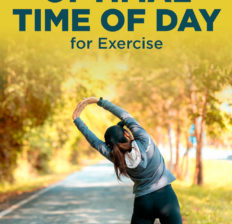This Dr. Axe content is medically reviewed or fact checked to ensure factually accurate information.
With strict editorial sourcing guidelines, we only link to academic research institutions, reputable media sites and, when research is available, medically peer-reviewed studies. Note that the numbers in parentheses (1, 2, etc.) are clickable links to these studies.
The information in our articles is NOT intended to replace a one-on-one relationship with a qualified health care professional and is not intended as medical advice.
This article is based on scientific evidence, written by experts and fact checked by our trained editorial staff. Note that the numbers in parentheses (1, 2, etc.) are clickable links to medically peer-reviewed studies.
Our team includes licensed nutritionists and dietitians, certified health education specialists, as well as certified strength and conditioning specialists, personal trainers and corrective exercise specialists. Our team aims to be not only thorough with its research, but also objective and unbiased.
The information in our articles is NOT intended to replace a one-on-one relationship with a qualified health care professional and is not intended as medical advice.
Research Examines Optimal Time of Day for Exercise for Women, Men
August 5, 2022

The benefits of exercise are undeniable, no matter when you decide to get your workout in. However, recent research reveals that there seems to be an optimal time of day for exercise – and it actually appears to differ for women and men, depending on goals.
Study: Optimal Time for Exercise
A team of researchers from the Department of Health and Human Physiological Sciences’s Human Nutrition and Metabolism Laboratory at Skidmore College, Arizona State University’ College of Health Solutions, and California State University’s Department of Kinesiology sought out to narrow down the optimal time of day for exercise.
“The ideal exercise time of day (ETOD) remains elusive regarding simultaneous effects on health and performance outcomes, especially in women,” the study authors relayed.
According to the researchers, “Given known sex differences in response to exercise training, this study quantified health and performance outcomes in separate cohorts of women and men adhering to different ETOD.”
To help determine the optimal time of day for exercise, the study followed 30 “exercised trained women” and 26 men for 12 weeks. The participants were randomly split into groups that either exercised in the morning or the evening.
To get a baseline, the researchers analyzed “muscular strength (1-RM bench/leg press), endurance (sit-ups/push-ups) and power (squat jumps, SJ; bench throws, BT), body composition (iDXA; fat mass, FM; abdominal fat, Abfat), systolic/diastolic blood pressure (BP), respiratory exchange ratio (RER), profile of mood states (POMS), and dietary intake.” They then reassessed those marks after 12 weeks.
Twenty-seven of the 30 women and 20 of the 26 men completed the 12-week trial. What did they find?
In the women participants, researchers noticed a significant difference between a.m. and p.m. workouts as it pertains to:
- bench press
- pushups
- power exercises
- fat mass
- abdominal fat
- blood pressure
For men, there were noticeable differences in systolic blood pressure and fatigue when comparing morning and evening workouts.
The researchers concluded:
Morning exercise (AM) reduced abdominal fat and blood pressure and evening exercise (PM) enhanced muscular performance in the women cohort. In the men cohort, PM increased fat oxidation and reduced systolic BP and fatigue. Thus, ETOD may be important to optimize individual exercise-induced health and performance outcomes in physically active individuals and may be independent of macronutrient intake.
What It Means
The results seem pretty straightforward. If you are a woman and want to trim fat from your midsection and lower blood pressure, morning exercise seems best, while evening workouts appear to help enhance muscular performance.
For men, evening exercise seems better for burning fat, lowering blood pressure and combating fatigue than morning workouts.
Having said that, this was a small study overall, so more research is needed to confirm these findings across the board — plus, different individuals may find other times that work better for them. However, this research does provide evidence that there is an optimal time of day for exercise to achieve different goals.
Still, even if you can’t fit your workout in during the optimal time of day for exercise, getting your body moving whenever you can is undeniably beneficial for health. Thus, don’t avoid working out on days that it’s difficult for you to do it during the so-called “ideal time.”
Other Exercise Tips
While the study above relayed apparent optimal times of day for different exercise benefits, getting as little as 10 minutes a day of exercise is still beneficial. That means you should get into the habit of working out whenever you can.
One way is to sneak some exercise hacks into your day, such as doing quick interval workouts, participating in walking meetings, using the stairs instead of the elevator and more.
Of course, if you can get into a regular fitness routine and find the optimal time of day for exercise to fit your lifestyle, even better. To do so:
- Set goals
- Find the best time to fit in exercise for your schedule
- Stick to it with a regular routine, whether that’s every day, every other day or three to four times per week.
Of course, exercise is only half of the equation. Don’t forget to eat a healthy, nutritious diet to complement all the hard work you put in for the best results and optimal health.



